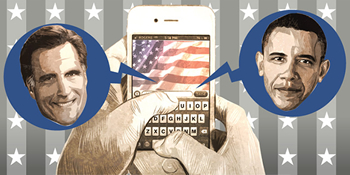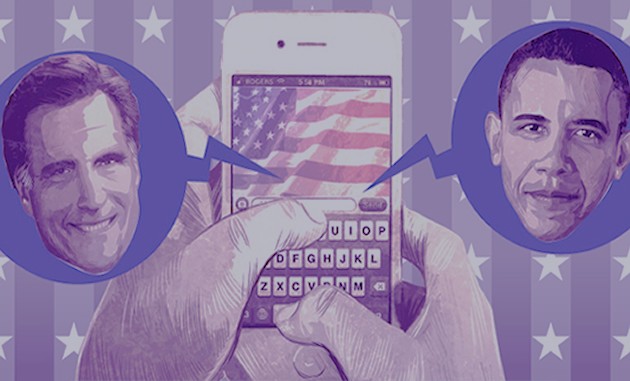 Until recently, political campaigns were eager to leverage mobile technologies, but faced many legal and technical roadblocks. As far back as 2000 for example, the Federal Election Commission (FEC) had considered a text message donation plan by the wireless carrier association CTIA, but the group could not figure out how to comply with campaign requirements to deposit contributions within 10 days, among other issues, and the plan went nowhere.
Until recently, political campaigns were eager to leverage mobile technologies, but faced many legal and technical roadblocks. As far back as 2000 for example, the Federal Election Commission (FEC) had considered a text message donation plan by the wireless carrier association CTIA, but the group could not figure out how to comply with campaign requirements to deposit contributions within 10 days, among other issues, and the plan went nowhere.
In later years, political campaigns continued to face legal and technical challenges, such as slow network data speeds, inadequate or inconsistent high-speed network coverage, low penetration of smartphones among certain demographics, and slow uptake of mobile services such as mobile content sharing apps and mobile payment services.
Barack Obama was the first US presidential candidate to embrace mobile technology and use it for a campaign. In his 2008 run for office, Obama and his campaign staff texted supporters to keep in touch and to announce their Vice Presidential nominee.
In the past two years, network quality and regular smartphone usage have increased dramatically, making political campaigns ripe for picking for mobile service providers. Payvia, a provider of mobile payment services, saw the opportunity, ran with it, and in mid 2012 won the FEC’s nod to be the exclusive mobile text donations service for both the Obama and Romney campaigns.
While neither the Obama nor Romney campaign would disclose funds raised via text contributions, Obama credited reaching the $10 million fundraising mark to new technologies. Similarly, Romney credited payvia’s service with enabling contributions in seconds rather than minutes. By the end of the election, one in 10 voters made a political contribution via text message or a mobile app.
The Romney camp also tried to use mobile technology for measuring and predicting voter turnout. However, the campaign’s “Project Orca” mobile voter tracking project experienced setbacks that some analysts believe hurt Romney’s campaign strategy.
As anyone who has ever deployed any technology for the first time knows, there are almost always challenges and lessons to be learned. Political campaign strategists will need to learn from others’ mistakes, and adapt quickly if they want to keep up with voters’ enthusiasm for mobile technologies and continue to win voters’ support. With 60% of voters polled by payvia claiming that they would vote by mobile if they could, the future of mobile in politics looks pretty exciting.
For more details on the mobile-ization of political campaigns, check out the infographic from payvia below.






